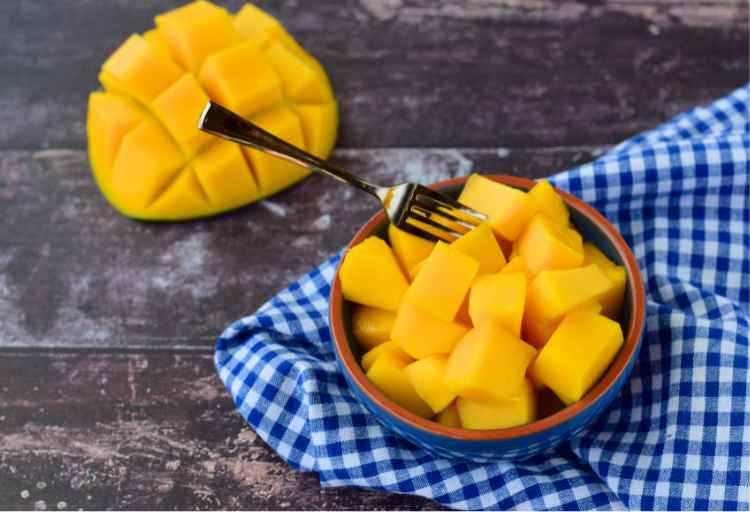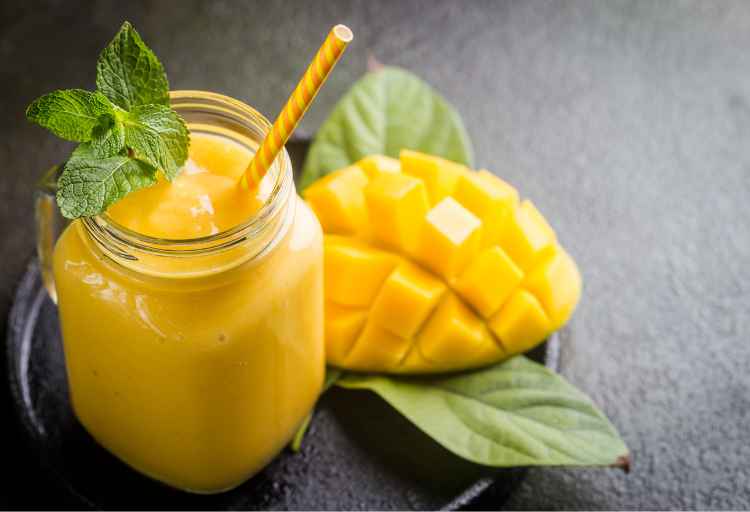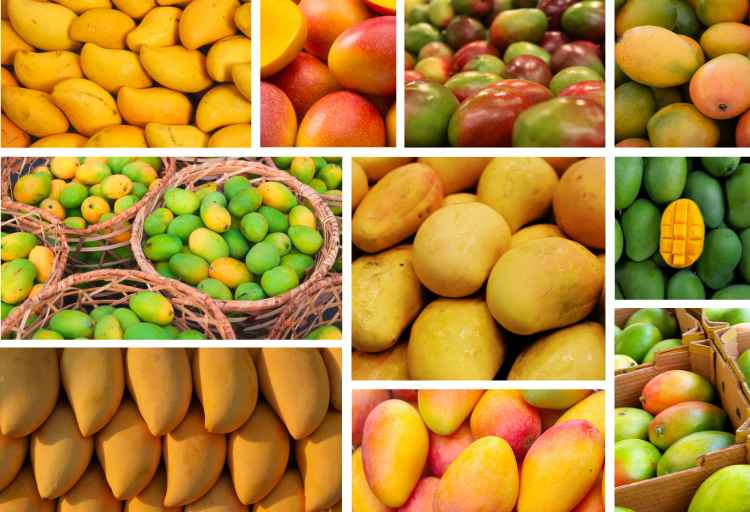Why Does Mango Taste Fizzy? Exploring the Unusual Sensation
Mangoes, known for their luscious sweetness and vibrant flavors, are a beloved fruit enjoyed by millions worldwide.
However, there’s an intriguing phenomenon that some people experience – the sensation of mango tasting fizzy. This unexpected twist in flavor perception has puzzled many and sparked scientific curiosity.
Why does mango taste fizzy? The perception of mango tasting fizzy is due to the interaction of aromatic compounds and sensory receptors, creating an illusion of effervescence. Texture and individual variations in taste perception also contribute to this intriguing sensation.

Contents
Why does mango taste fizzy? Understanding Taste Perception
Before delving into the fizzy mango mystery, it’s important to grasp the basics of taste perception. Our taste buds detect five primary tastes: sweet, sour, salty, bitter, and umami.
But taste isn’t solely influenced by our taste buds; it’s a combination of taste, smell, and texture that creates our perception of flavor.
Our brain processes these sensory inputs to construct a complete flavor experience.
The Fizzy Mango Experience Explained
The sensation of mango tasting fizzy, often described as a subtle tingling or effervescent feeling on the tongue, is a result of complex interactions between taste, smell, and texture.
While mangoes are not inherently fizzy, several factors contribute to this unique perception.
1. Aromatic Compounds and Volatile Substances:
Mangoes contain a variety of aromatic compounds and volatile substances responsible for their distinct aroma.
These compounds are released when the fruit is cut or bitten, contributing to the overall flavor experience.
In some cases, these volatile substances can trigger a sensory crossover with carbonation, creating the illusion of fizziness.
This interaction between aroma and taste receptors can lead to the fizzy sensation that some people report.
2. Sensory Cross-Activation:
Our taste and sensory receptors are intricately connected, often leading to unexpected interactions.
The same receptors that perceive carbonation or fizziness in beverages might respond to certain compounds present in mangoes.
This cross-activation can cause our brain to associate the mango’s flavor with the effervescent sensation of carbonation, even though there’s no actual carbonation involved.
3. Texture and Palate Interaction:
Texture plays a vital role in our perception of food. The texture of a mango, especially when it’s ripe and juicy, can mimic the sensation of effervescence on the palate.
The combination of the fruit’s smoothness and its slightly fibrous structure might trigger a tactile response that aligns with the mouthfeel of carbonated drinks.
4. Individual Differences in Sensory Perception:
Not everyone experiences the fizzy mango sensation, highlighting the subjectivity of taste perception.
Genetic variations in taste receptors, smell sensitivity, and overall sensory processing can influence how each person interprets flavors.
Therefore, the fizzy mango experience might be more pronounced in individuals with specific sensory attributes.
Scientific Insights
While anecdotal experiences have shed light on the fizzy mango phenomenon, scientific research is still in its early stages when it comes to fully explaining this sensory crossover.
Ongoing studies are exploring the molecular interactions between the compounds in mangoes and the receptors responsible for detecting carbonation and effervescence.
Implications and Culinary Experiments
The fizzy mango experience has intrigued culinary enthusiasts and chefs, prompting them to experiment with creating dishes that intentionally evoke this unique sensation.
From mango-infused sparkling waters to mango-flavored desserts that play with the perception of fizziness, the phenomenon has inspired creative culinary innovations.
Conclusion
The mystery of why mango sometimes tastes fizzy is a fascinating intersection of taste, smell, texture, and individual sensory perception.
While science has begun to unravel some aspects of this phenomenon, there’s still much to explore.
Whether it’s the result of aromatic compounds, sensory cross-activation, or texture-related triggers, the fizzy mango experience showcases the complexity of our sensory world.
So, the next time you enjoy a succulent mango, pay attention to the subtle nuances of flavor – you might just uncover the delightful fizzy sensation for yourself.
FAQs
Why does mango sometimes taste fizzy?
The fizzy sensation when eating mangoes is a result of aromatic compounds and sensory receptors interacting, creating an illusion of effervescence similar to carbonation.
Is the fizzy feeling in mangoes the same as carbonation?
No, the fizzy sensation in mangoes is not actual carbonation. It’s a perceptual crossover between taste, smell, and texture, tricking the brain into perceiving a fizzy quality.
Do all mangoes taste fizzy?
No, not everyone experiences the fizzy sensation when eating mangoes. Sensory perception varies based on individual differences in taste receptors, smell sensitivity, and palate texture interaction.
Can the texture of mangoes influence the fizzy perception?
Yes, the texture of ripe mangoes can contribute to the fizzy perception. The combination of smoothness and slight fibrousness in the fruit can mimic the mouthfeel of carbonated drinks.
Are there any scientific studies on the fizzy mango phenomenon?
While anecdotal evidence exists, scientific research into the fizzy mango experience is ongoing. Studies explore the molecular interactions between mango compounds and sensory receptors to better understand this unique sensation.






